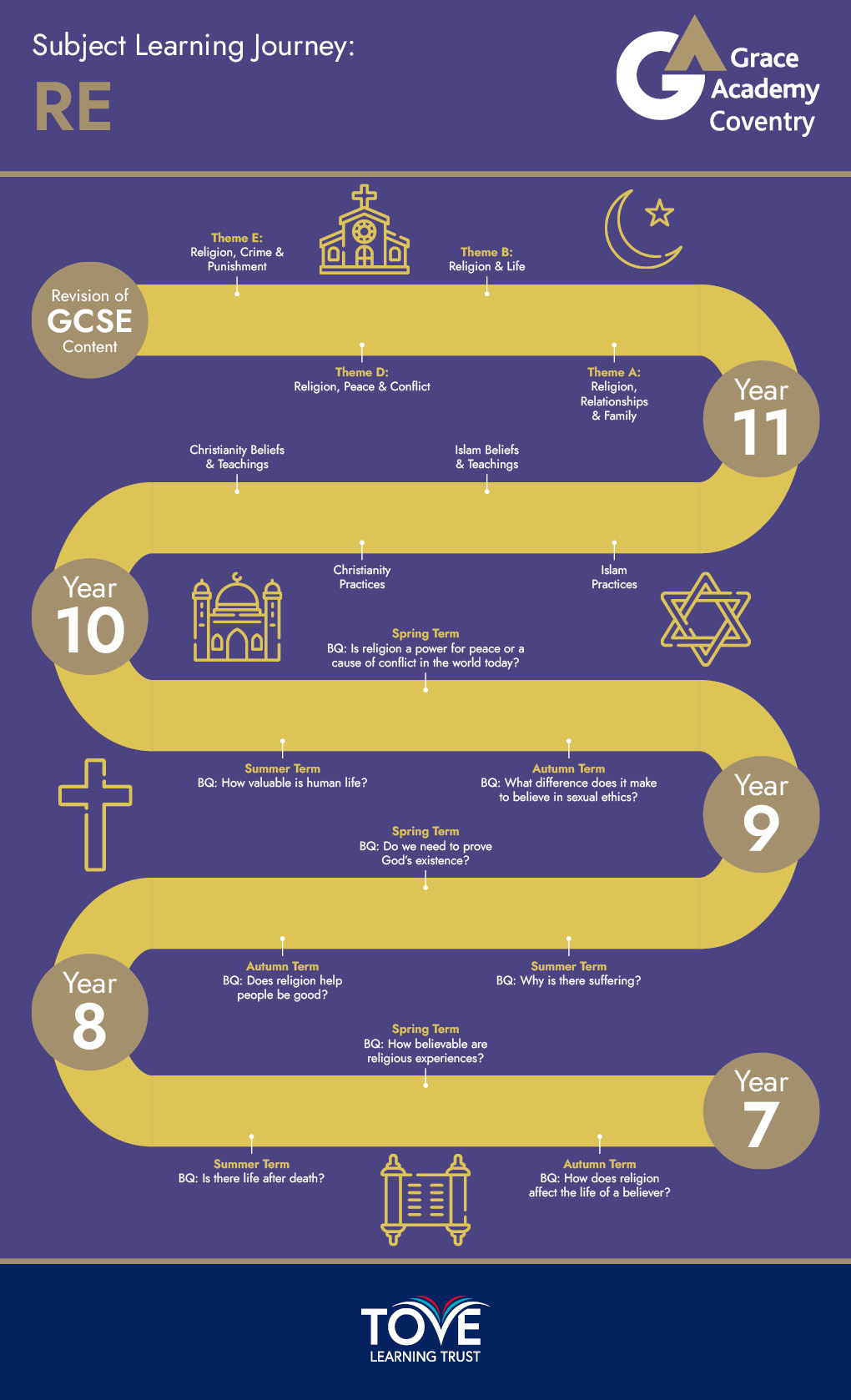Religious Studies
Curriculum Intent
At Grace Academy, we believe it is Religious Education that promotes these virtues and encourages students to respect and immerse themselves into the wider world around them. Our broad curriculum allows pupils to use their knowledge to justify their opinion on controversial topics, as well as consider opposing views. Our systematic approach to curriculum delivery ensures that we are building upon that knowledge throughout their time at Grace Academy to prepare them for life outside of Grace.
Religious Education is the subject to provide pupils with the knowledge they need to become good human beings in line with our school ethos and values. This is to reflect the need of accepting, informed and respectful young people entering the diverse workplace and higher education.
Our wider curriculum ensures that students gain experiences of a variety of faiths, the perspectives held by individuals of different faiths and where our Christian Ethos guides our values and approach to both education and life.
“The whole purpose of religion is to facilitate love and compassion, patience, tolerance, humility and forgiveness” - Dalai Lama
Religious Education for all is delivered through:
- PSHE lessons
- Our form time curriculum
- Explicit "Drop-down" immersion days
At Key Stage 5, Religious Education is delivered through:
- Timetabled lessons for all students
The impact across both key stages is assessed, and this informs future delivery and content. At Key Stage 4, assessment is both formative and summative. At Key Stage 5, assessment is formative.
Qualification information:
https://www.aqa.org.uk/subjects/religious-studies/gcse/religious-studies-a-8062
Curriculum content:
Attached are the curriculum maps which outline the sequence we use in order to structure our learning. If you would like to support your child's learning, we have attached links to Oak National Academy who provide lessons, activities and resources for commonly taught topics. Please use the curriculum map for this subject before visiting:
https://teachers.thenational.academy/subjects/religious-education/key-stages/key-stage-3
https://teachers.thenational.academy/subjects/religious-education/key-stages/key-stage-4

